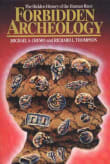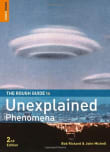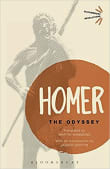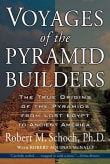Fingerprints of the Gods
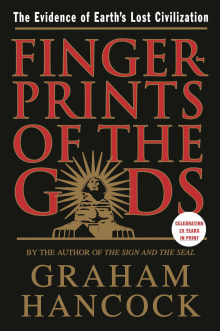
Book description
Could the story of mankind be far older than we have previously believed? Using tools as varied as archaeo-astronomy, geology, and computer analysis of ancient myths, Graham Hancock presents a compelling case to suggest that it is.
“A fancy piece of historical sleuthing . . . intriguing and entertaining and…
Why read it?
5 authors picked Fingerprints of the Gods as one of their favorite books. Why do they recommend it?

I picked this up for inspiration for my next book; Graham Hancock has very compelling and entertaining “revisionist” takes on deep history, and this was no exception.
I was especially intrigued by the implications that there was once a very advanced civilization in Antarctica around 5000 years ago. Hancock made a compelling case that it was, essentially, the site of the lost island of Atlantis (though he never used that term that I can recall). He made the case that the demigods who originated in Antarctica eventually made their way to South America and Egypt, where they left behind their…

Graham Hancock's book has inspired me to learn more about mysterious places like Stonehenge and Machu Pichu.
Graham is a former newspaper reporter, which is evident when reading his works. He goes to the site and gives you a report on what he saw and learned about the place. He includes history, native beliefs, and mainstream archaeological theory to help the reader develop a clear understanding of the mystery and the differing viewpoints about the mystery.
I highly recommend this book to anyone interested in mysterious places.
From Jerry's list on ancient mysteries that popular culture loves to explore.

“We are a species with amnesia.” – Graham Hancock.
There was human history before there was human history, and traces of that lost time can be found in our myths and legends. In his breakout 1996 book, Fingerprints of the Gods author Graham Hancock puts forth the exciting, and highly controversial possibility that, thousands of years before the Egyptian and Mesopotamian civilizations, there may have been an advanced, global human civilization. He postulates this civilization was annihilated in a world-shattering catastrophe. Now, a quarter of a century after publication, science is slowly catching up with Hancock’s hypothesis.
From Brian's list on epic adventures at the beginning of time.
If you love Fingerprints of the Gods...

Graham Hancock’s Fingerprints of the Gods was written, as a successful breakthrough, with the technique of fiction rather than nonfiction, and as a result, is a very engaging read. In a way, one could state that Hancock is the pioneer of narrative non-fiction, which already is and will continue to be the literary medium of choice of the twenty-first century. Some of the book’s claims are... odd (Atlantis in Antarctica!), others, for example the actual occurrence of the Great Flood, have been since confirmed by various other open-minded scholars. If you are amenable to having your hard-earned assumptions challenged, start…
From Guido's list on extra-canonical voyages that will challenge you.

I’ve read this book twice and have post-it notes jammed into it all over and will need to read it again before I tackle the sequel. This book is so good at asking questions. Unfortunately, there aren’t a lot of answers, but that’s also what makes it so delicious to read. It just makes you think. Makes you wonder. The gap between the question and the answer is a magical place – like the anticipation of unwrapping a present on your birthday, but just before you figure out what it is. I want to live in that moment.
From Margarita's list on you’ll want with you if you're ever stranded.
Want books like Fingerprints of the Gods?
Our community of 12,000+ authors has personally recommended 100 books like Fingerprints of the Gods.











